“The Day of Disabled People” is on April 20th in Korea. This minor holiday is for improving social awareness and inspiring the willingness to respect disabled people. You may wonder why The Day of Disabled People is in April in Korea? Since April represents the revival of all things, so too it can express reformation.
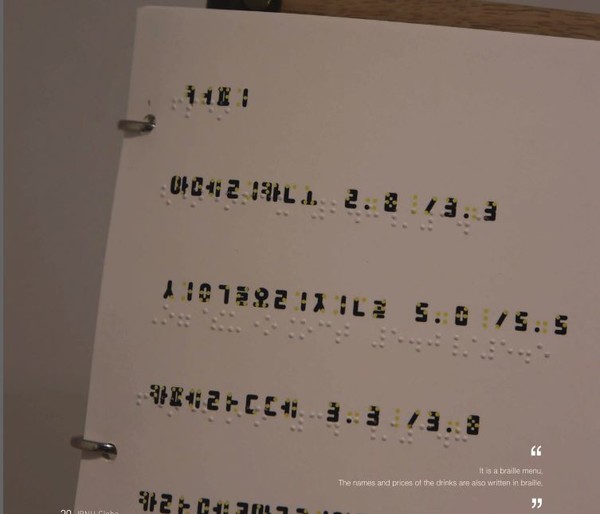
● Misconceptions about Disabled People
To live beside one another, we need to understand each other. Here are the common misconceptions about disabled people, in hopes to understand them better.
Q. Do we have to help disabled people in every situation?
A. Non-disabled people typically have this attitude when they meet disabled people. However, it is not true that disabled people always need help. Most disabled people live alone without help from others as they learned how to live by themselves when they were young. For this reason, it is better not to think of disabled people as always needing help. People should help them only when they ask for help or are in dangerous situations. In addition, when you do help disabled people, ask them what kind of help they need first.
Q. Can deaf people only use sign language when they communicate with others?
A. No, not all deaf people communicate using sign language. Usually, others think they can only talk to a deaf person with sign language because that person has problems with hearing. However, there are many ways for deaf people to communicate. They might use a hearing aid or use the lip reading method. Lip reading is a way to understand what others are saying by looking at their mouth shape or facial expressions. Therefore, when you talk with the deaf, show your mouth shape and enunciate clearly. Moreover, when you want to convey crucial information, use writing.
Q. Is sign language the same regardless of country?
A. Most people think so, but that is a misconception. Sign language is different depending on the country. For example, as the word “love” is different in Korean, Chinese, and English, it is also different in sign language. Here is an example of different sign language for “sorry”.
-Korea: Make a circle with the thumb and forefinger of your right hand, put it on your forehead, and then put down your hand with your fingers splayed outward.
-America: Make your right hand into a clenched fist and draw a small circle downward from your chest’s left side or center.
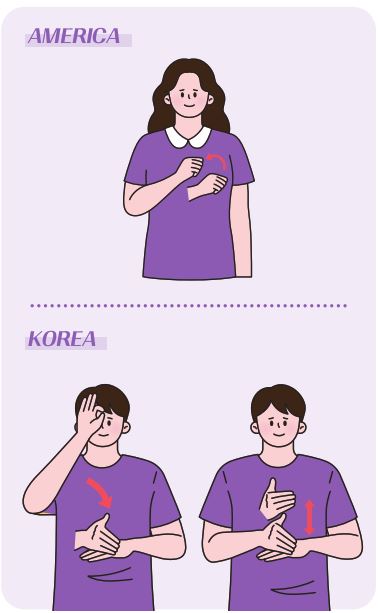
Q. All visual impairments can’t see anything?
A. Commonly, when people think of visual impairments, they may think like all visual impairments can’t see anything. However, only total blindness can't see anything. Total blindness accounts for only a small percentage of visual impairments. Eight out of ten of those with a visual impairment have visual disturbances and visual field defects that can identify objects. What is more, those who experience total blindness can still go outside with the aid of a guide dog or cane.
Q. Do guide dogs lead their owners by knowing their destination?
A. No, guide dogs simply help those they are guiding to avoid dangerous places or obstacles; they do not know the destination. Therefore, if you see someone who is blind being led by their guide dog, step aside so as not to disturb the guide dog’s path.
● Hashdam, People Who Strive for Better World
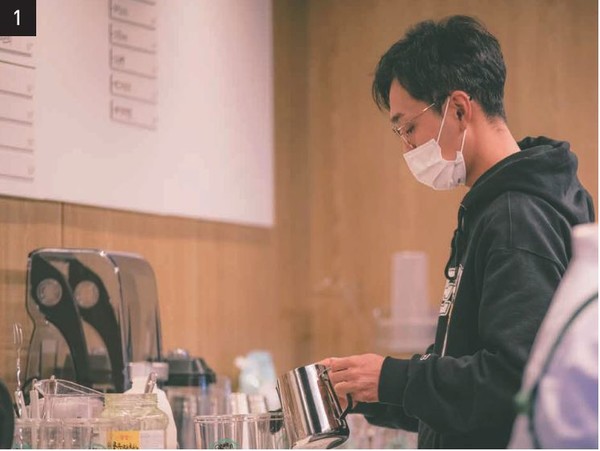
The JBNU Globe met Kim Hyun-jun, the chairman of the social cooperative *Hashdam[해시담], at the Jeonju Social Innovation Center. He graduated from the Department of Rural Construction Engineering at JBNU. Hashdam is a co-op in Jeollabuk-do that conducts various projects with disabled and non-disabled members. It tries to improve disability awareness and enhance the quality of life of disabled people. Kim said, “at first, I ran a Haeboneun[해보는] co-op, which means ‘try’. There was a disagreement within the management team, so I quit. Then I set up a new cooperative with employees who agree with me, which is now Hashdam co-op. We make videos about misconceptions and truths about the lives of the disabled and upload them on YouTube. We also operate a cafe called “Cafe Regen” on the first floor of the Jeonju Social Innovation Center.” Additionally, Hashdam goes to the child care center in Jeonju to give lectures to promote disability awareness and provide education on human rights in elementary schools. For the disabled members of Hashdam to successfully stand on their own feet, they are also given opportunities for job experience. All of these were created in the hopes that disabled people can expand their scope of opportunities and coexist with others. Although each project has different aims, the core goals of the projects are the same. Kim added, “we are endeavoring to create jobs for disabled people and to create a community where they can open up to others. These are our projects’ focal points.” Kim detailed his plans to work with Jeonju City. “There is a list of disabled-friendly businesses on the Jeonju City Hall website. There are about one-hundred restaurants, and we have investigated whether Jeonju City approved them correctly with the support of the Jeonju Social Innovation Center. Eighty percent of the disabled-friendly restaurants were shams. This is because only non-disabled investigators were selected and performed poor investigations. I met with a member of the Jeonju City Council and suggested that we make this list again with our activists. Thus, I think we will do a total inspection with Jeonju City Council later this year.” Kim also discussed Cafe Regen. “Regen” is short for “regeneration.” He chose this word because he wants disabled baristas and workers to live a new life of their own. This cafe has design features that consider disabled people. There are no gaps in the pavement, enabling the pavement to be flush with the entrance of the cafe so that disabled people who use wheelchairs or canes can enter and exit safely. There are disabled toilets on the first and third floors, and a two-way POS (Point of Sale) machine has been installed for disabled baristas inexperienced in machine operation and customer service. Kim added, “this is the only cafe in downtown Jeonju with a braille menu. Plus, we are practicing “regeneration” by using reusable cups in the store and using cups and straws made from biodegradable materials when customers are taking out.”
*This is a non-profit cooperative aimed at providing businesses related to local residents' interests, welfare promotion, and providing social services or jobs to the vulnerable.
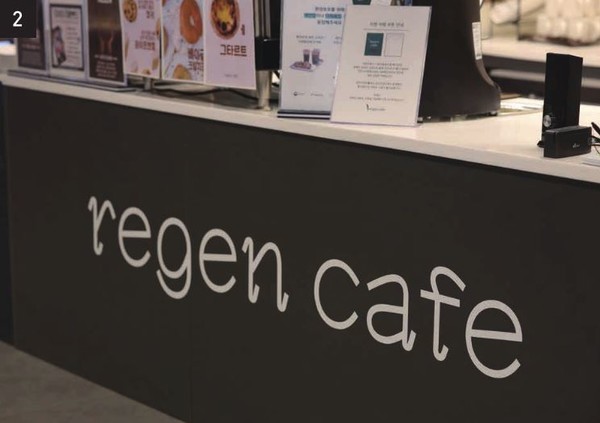
● Disabled Barista, Go Forward Successful into Independence
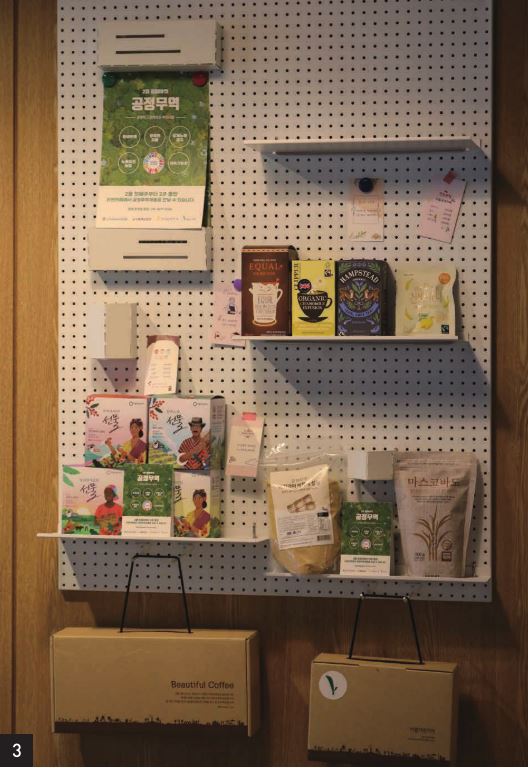
The JBNU Globe interviewed Park Cho-hui, the disabled barista of Cafe Regen. Before working at Cafe Regen, she worked at a cafe in a welfare center. Then a social worker introduced Cafe Regen as an option for her, and since she wanted to work at a different cafe, she started working at Regen. Park mentioned that it is still difficult to use a twoway POS machine. “I have to respond differently when a customer orders through a two-way POS machine and when a customer orders through me,” she stated. Sometimes there are difficulties, but she feels proud whenever she is able to make drinks herself by studying the recipes. The JBNU Globe asked about her future dream. She said she wants to work at a franchise cafe as a barista, not as a disabled employee.
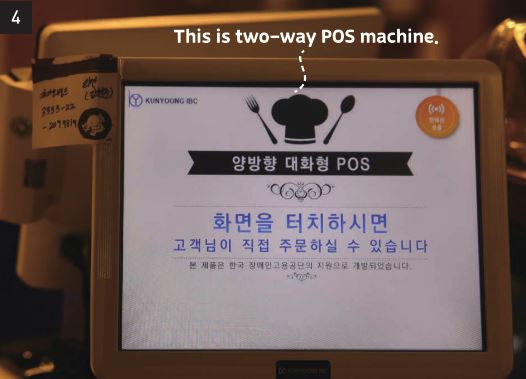
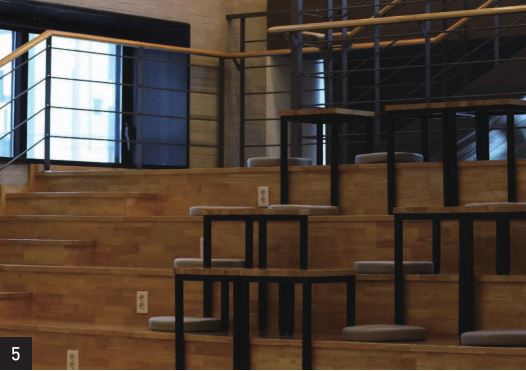
Many people, including Hashdam, are making great efforts for disabled people. The world must change so that they can enjoy normal lives and work in various fields. Let's strive to make a world where disabled and non-disabled people can live side-by-side.
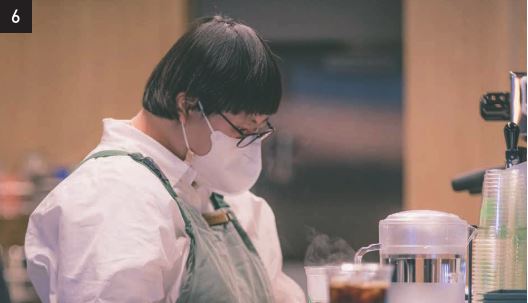
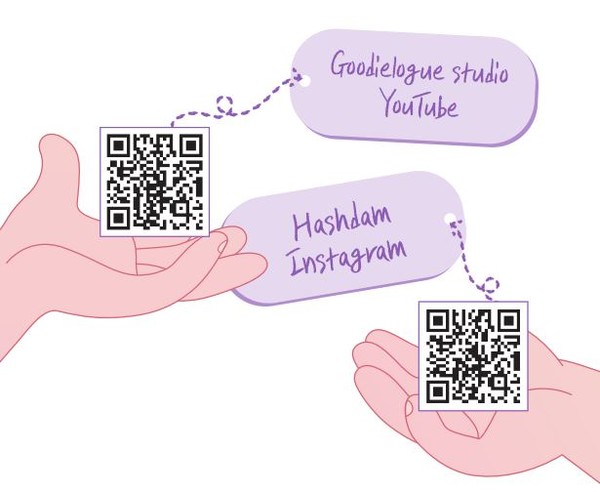
| Lee Da-yeon, Ha Yae-one Editors, Yoon Ye-rim Reporter

